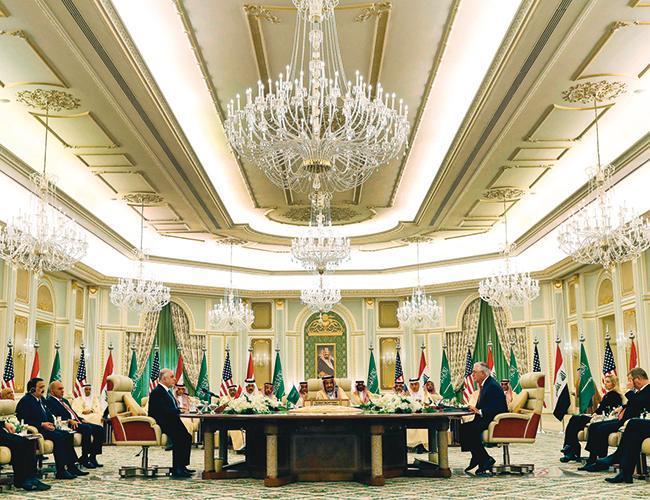
U.S. Secretary of State Rex Tillerson took the Trump administration's case for isolating and containing Iran in the Middle East and beyond to two Gulf Arab nations on Oct. 22, pushing for Saudi Arabia and Iraq to unite to counter growing Iranian assertiveness. He also called for a quick resolution to the ongoing crisis between Qatar and its Arab neighbors, which he said was unintentionally bolstering Iran.
In Saudi Arabia and later Qatar, Tillerson denounced Iran's "malign behavior" and urged nations of the region and elsewhere, notably Europe, to join the administration to halt any business they do with Iran's powerful Revolutionary Guard Corps.
In Riyadh for the inaugural meeting of the Saudi Arabia-Iraq Coordination Council - a vehicle that U.S. officials believe can wean Iraq from Iran - Tillerson told Saudi King Salman and Iraqi Prime Minister Haider al-Abadi that the nascent partnership between their countries held great promise for Iraq's reconstruction after devastating battles to wrest territory from the Islamic State of Iraq and the Levant (ISIL) and its independence from foreign influence.
"We believe this will in some ways counter some of the unproductive influences of Iran inside of Iraq," he said at a news conference with Saudi Foreign Minister Adel al-Jubeir after the council meeting.
Tillerson said countries outside of the region could also play a role, primarily by shunning the Revolutionary Guards, which play a major role in Iran's economy and were added to a U.S. terrorism blacklist earlier this month. Companies and countries that do business with the guards "really do so at great risk," he said.
"We are hoping that European companies, countries and others around the world will join the U.S. as we put in place a sanctions structure to prohibit certain activities of the Iranian Revolutionary Guard that foment instability in the region and create destruction in the region," Tillerson said.
At the council meeting, Tillerson praised the Saudi king and Abadi for the August reopening of a major border crossing and the resumption of direct flights between Riyadh and Baghdad last week.
His participation in the meeting comes as U.S. officials step up encouragement of a new axis that unites Saudi Arabia and Iraq as a bulwark against Iran's growing influence from the Persian Gulf to the Mediterranean Sea.